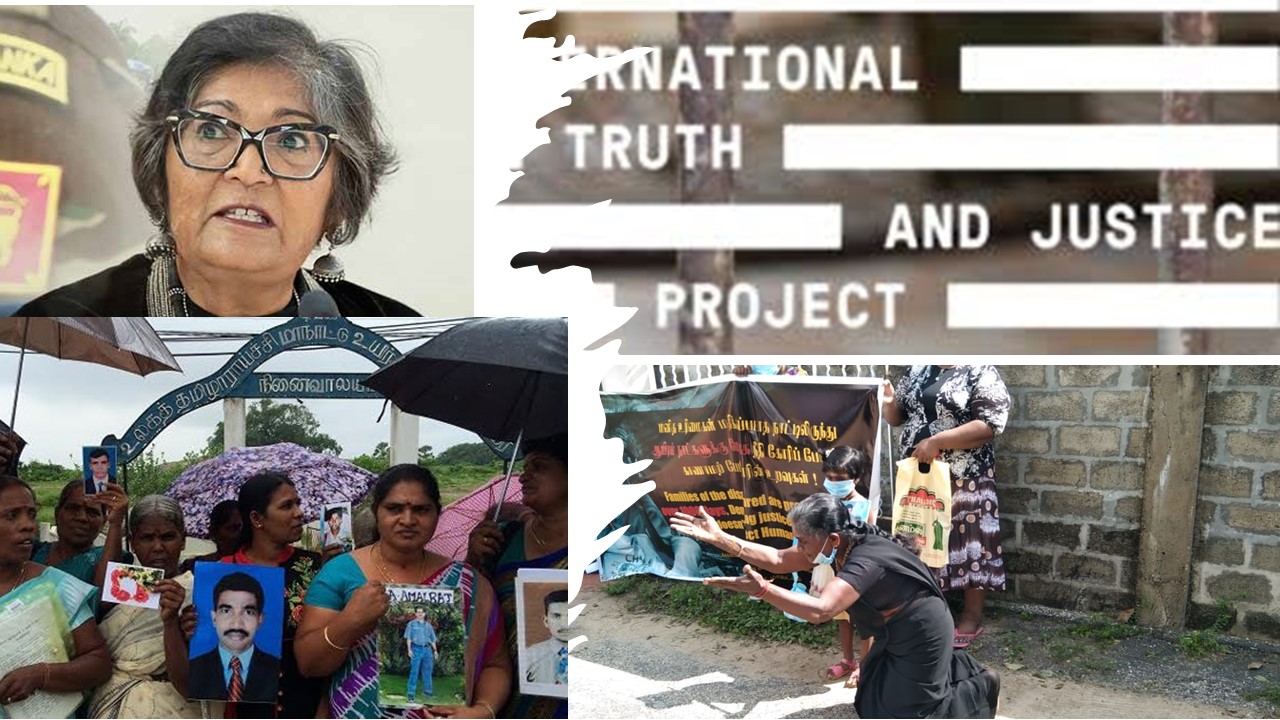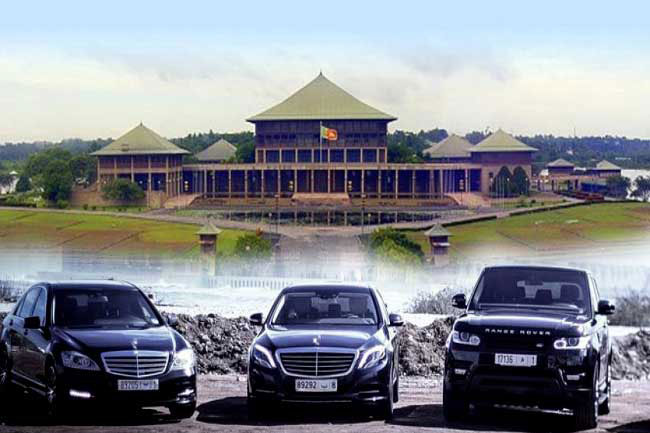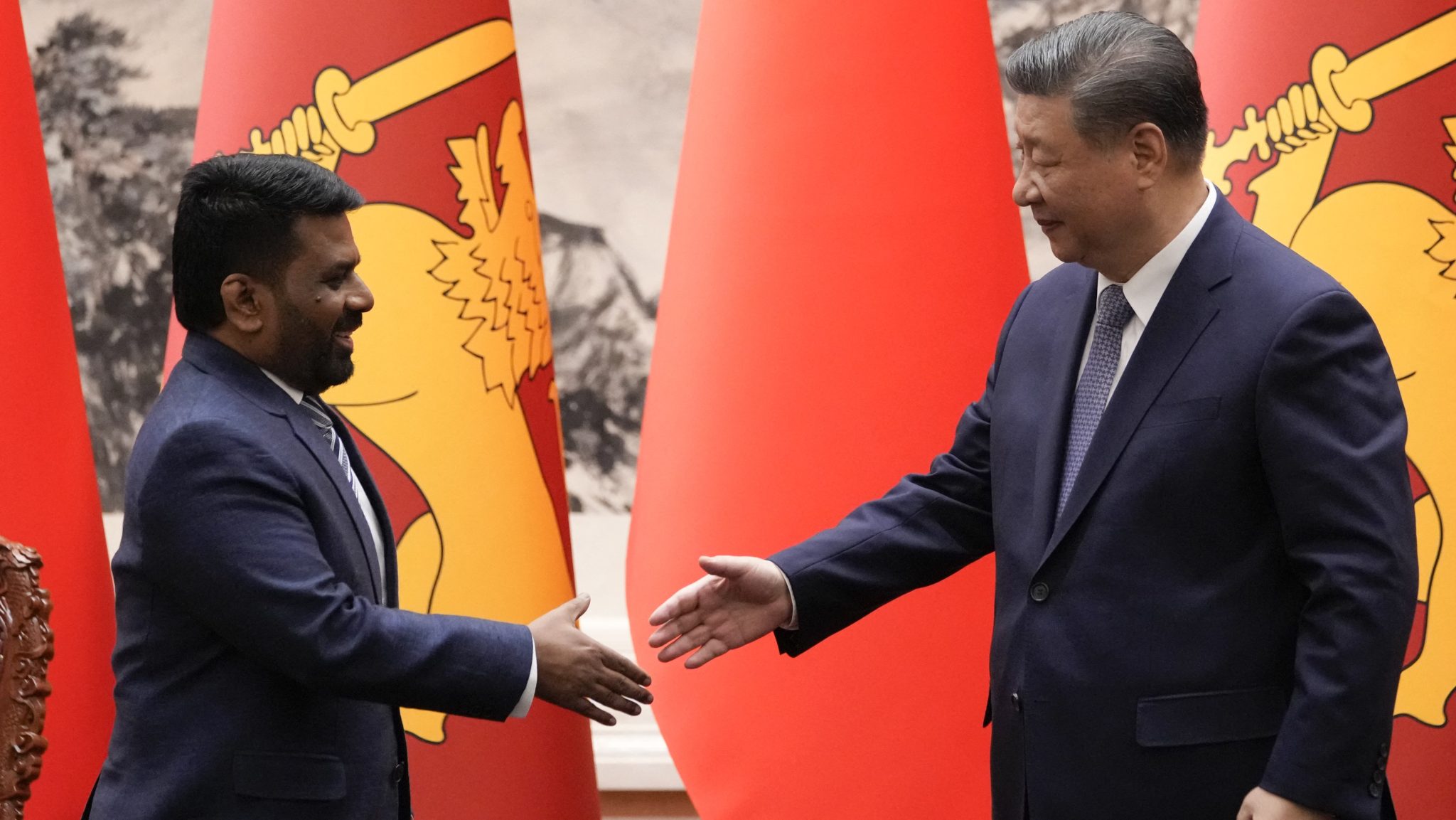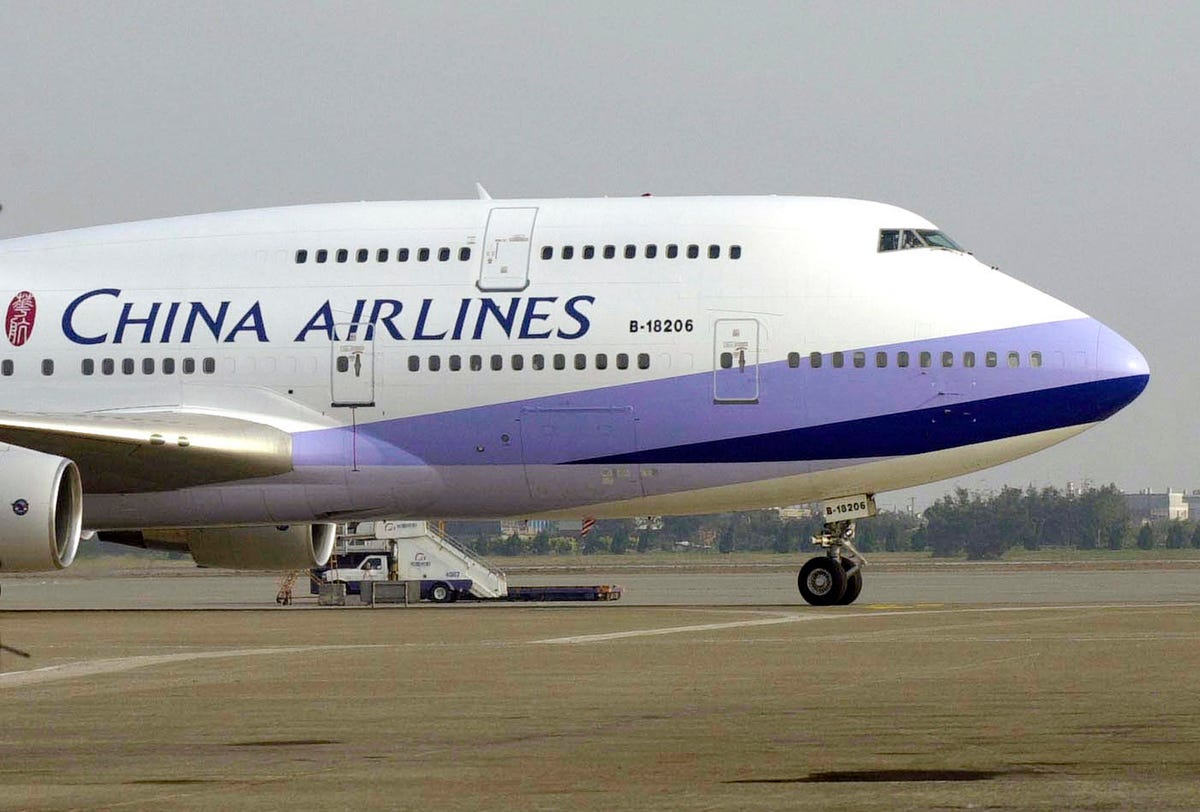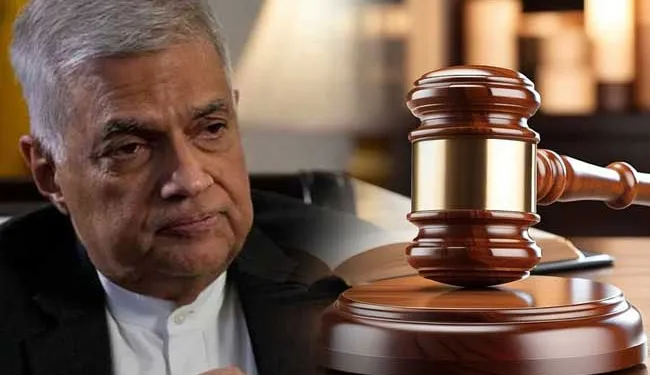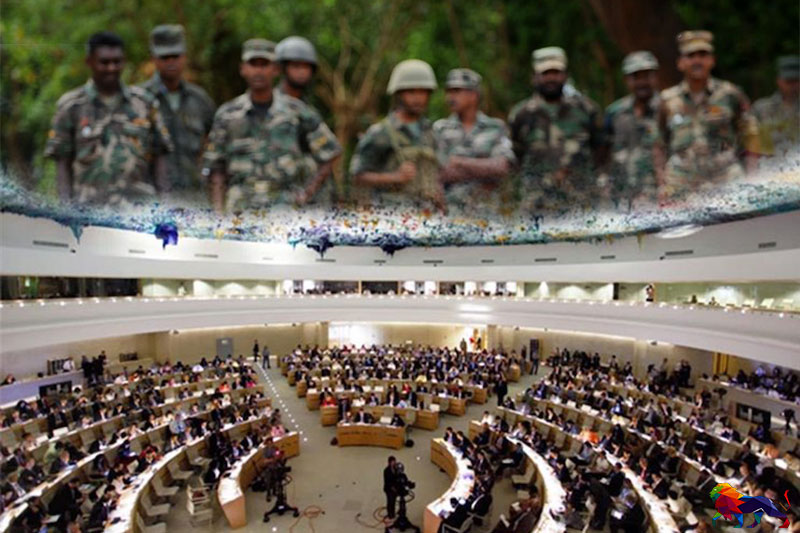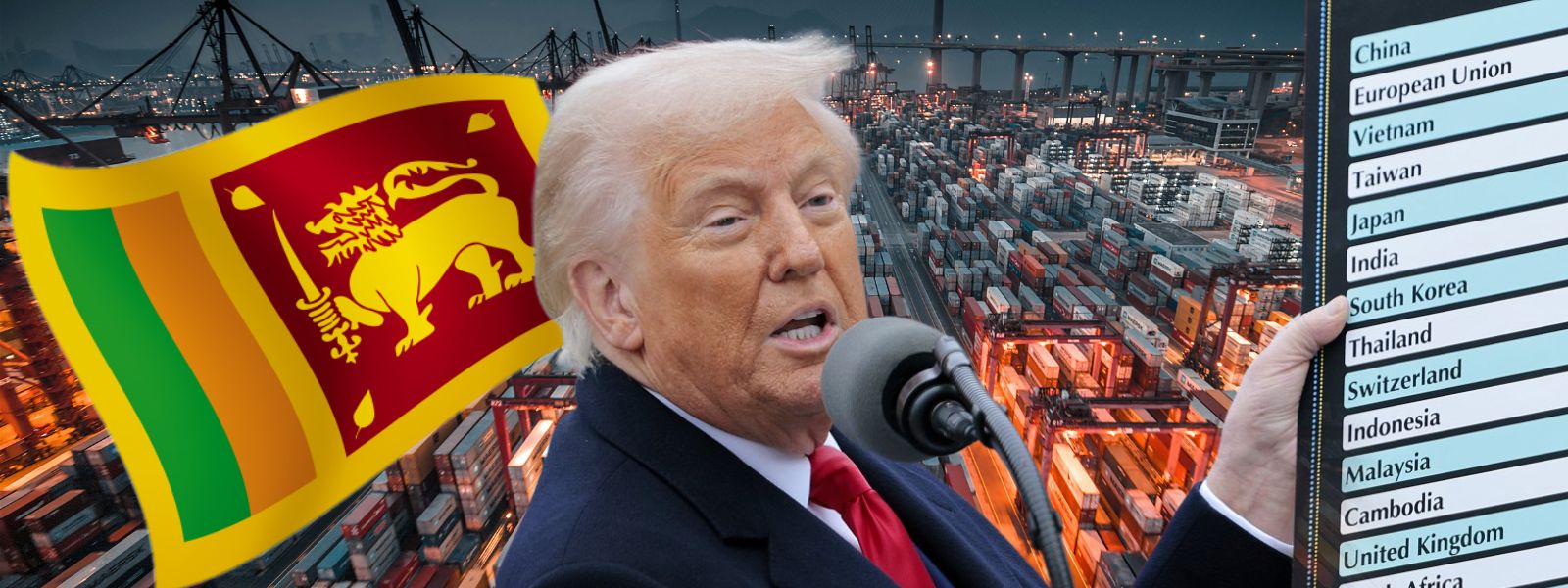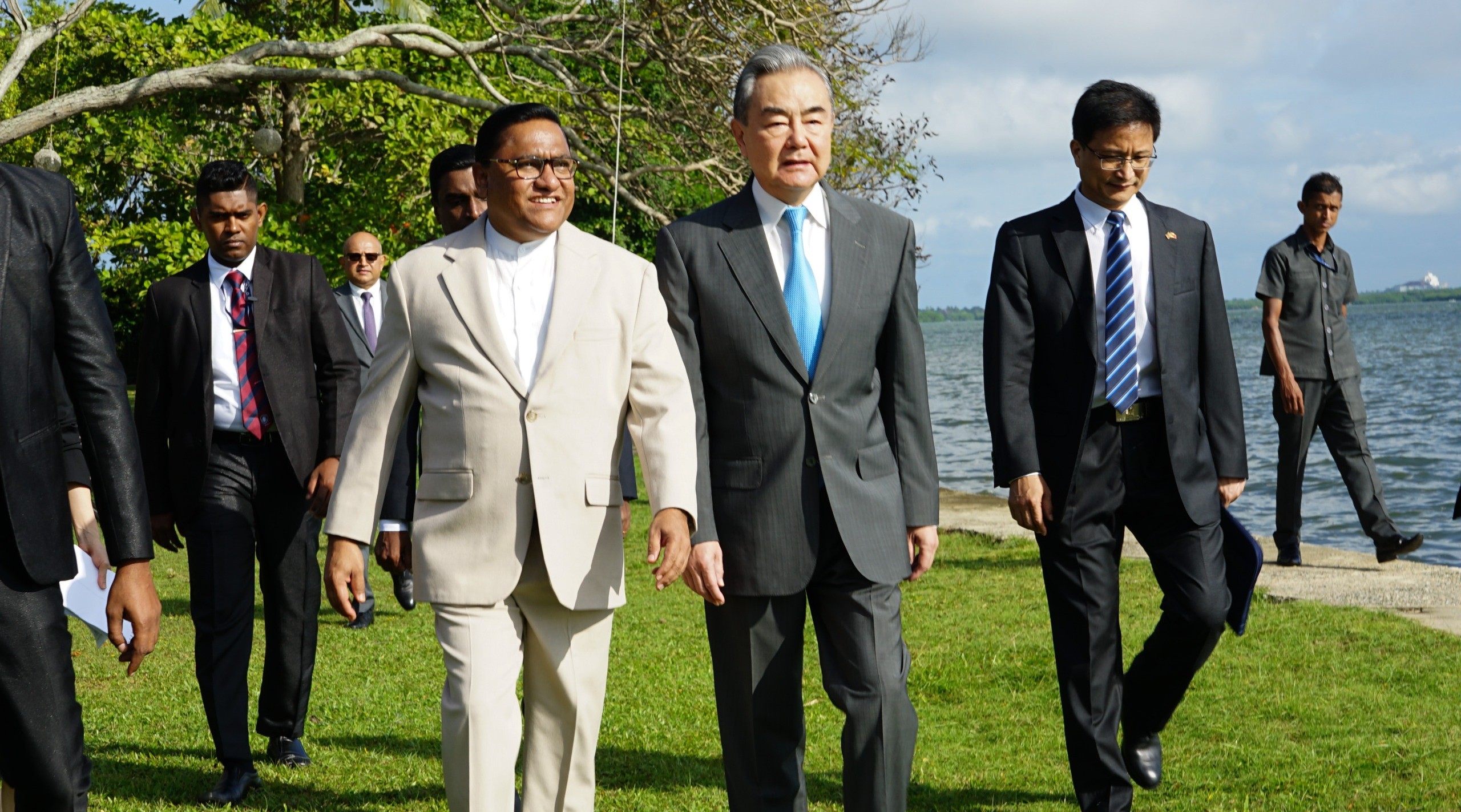President Anura Kumara Dissanayake (AKD) last week launched one of the country’s large-scale housing projects with the national housing programme for 2026 under the theme ‘A Place to Belong – A Beautiful Life’ in Chavakachcheri in Meesalai on Friday (16). The programme is aimed at providing housing for 31,218 families nationwide, including 2,500 war-displaced families from the north and east. Under the first phase of the programme, providing Rs. 2 million per house for 800 war-displaced families in the Jaffna District was commenced by presenting cheques of Rs. 300,000 each.
AKD’s two-day visit to the Northern Province saw him also launching two renewable energy generation projects in Mannar as well.
The President also attended Thai Pongal celebrations in Jaffna with many engagements with the people in the district. Video clips of AKD engaged in a morning walk clad in a pair of shorts and T-shirt on the streets while exchanging pleasantries with the people were widely shared on social media with positive as well as critical comments aimed at the President and his Janatha Vimukthi Peramuna (JVP)-led National People’s Power (NPP) Government.
However, it is interesting that while AKD was in Jaffna, the Ilankai Tamil Arasu Katchi (ITAK) had opposed a national programme being pushed by the JVP/NPP Government – ‘Prajashakthi.’ ITAK Media Spokesperson, former Member of Parliament (MP) M.A. Sumanthiran noted that ‘Prajashakthi’ was a mechanism carried out based on a political party and that it operated in parallel to the State machinery and set a wrong precedent.
He further stated that development activities, which should be carried out by elected Local Government representatives, were instead being undertaken through the ‘Prajashakthi’ programme, thereby obstructing the functions of those institutions. Sumanthiran also emphasised that the programme was contrary to the Constitution and added that legal action would be taken against it in the future.
Meanwhile, religious observances have taken centre stage in the diaries of many Opposition political leaders in the past two weeks. While former President Ranil Wickremesinghe (RW) engaged in religious observances in Anuradhapura, Sri Lanka Podujana Peramuna (SLPP) National Organiser Namal Rajapaksa and his wife visited Bodh Gaya in India last week to engage in religious observances.
IMF’s review delegation
Meanwhile, a delegation of the International Monetary Fund (IMF) is expected to visit Sri Lanka on Thursday (22) and is to remain in the country till 28 January. The delegation will be on a fact-finding mission to review the country and its economic situation under the ongoing Extended Fund Facility (EFF) following the impact of Cyclone Ditwah.
The IMF’s Executive Board postponed its decision on releasing the sixth tranche under the IMF’s EFF facility that was due to take place last December following the Sri Lankan Government’s request for a Rapid Financing Instrument (RFI) following the cyclone.
Central Bank of Sri Lanka (CBSL) Governor Dr. Nandalal Weerasinghe meanwhile has said that Sri Lanka should pursue revisions to the targets set under the IMF’s EFF arrangement, considering recent unforeseen developments.
He has noted during a televised programme that discussions on revising the targets are expected during the upcoming visit of an IMF delegation later this month.
“It was initially expected to complete the fifth review on 15 December 2025. However, due to the cyclone, the Government noted that the previously proposed budget would no longer be applicable for the coming year, as additional expenditures would be required,” he has explained, noting that time was needed to postpone the review, make assessments, and set new targets for the year ahead and beyond.
“The IMF also offers RFIs, which are well suited for situations like this,” he has further noted, while adding: “In 2020, we were not eligible for this support due to the lack of debt sustainability. Now that we have achieved it, the RFI is the most appropriate option.” Dr. Weerasinghe has added that a key advantage of the RFI is that it does not require a formal agreement with the Government.
The CBSL Governor’s recent statement has been viewed with much interest by many economists who have noted that the Governor seems to have had a change of heart with regard to Sri Lanka’s current engagement with the IMF and is now sounding close to the calls of the main Opposition Samagi Jana Balawegaya (SJB).
Wang Yi’s transit visit
Meanwhile, the much-touted visit of Chinese Foreign Minister Wang Yi, which was hyped in the media, turned out to be just a transit visit on his return trip to China following an official visit to Africa. Wang arrived in Sri Lanka on Monday (12) morning with a 17-member delegation and left the country that evening.
They were received at the airport by Chinese Ambassador to Sri Lanka Qi Zhenhong and senior officials from the Chinese Embassy. Representing the Sri Lankan Government, Ministry of Foreign Affairs East Asia and Oceania Division Director General Savitri Panabokke and other ministry officials were also present.
It is learnt that Minister Wang had stayed at the Jetwing Lagoon hotel in the Negombo area during his period of transit in Sri Lanka.
Foreign Minister Vijitha Herath met with Wang at Jetwing Lagoon during his transit visit and while welcoming the Chinese Minister, Herath had extended his sincere appreciation to the Government and people of China for their timely and generous support to Sri Lanka in the aftermath of Cyclone Ditwah.
Herath further said that in this regard, he had particularly requested the assistance of the Chinese Government in infrastructure development, including reconstruction of identified roads, railways, and bridges which had been affected.
“Minister Wang Yi assured his personal intervention to the said request, expressed confidence that Sri Lanka was on the right track for early recovery, and reaffirmed the Chinese Government’s fullest support,” he added.
Chinese displeasure
However, the brief, anticlimactic visit by Wang in Sri Lanka has resulted in much talk about what seems like a change in the Chinese towards the JVP-led Government.
It was initially reported that Wang was likely to meet with President AKD and Prime Minister Harini Amarasuriya, apart from Foreign Minister Herath, during his brief visit to Sri Lanka. The meetings with the President and Prime Minister did not take place, and it is learnt that they had not taken place because the Chinese Foreign Minister was on a brief transit stop and due to logistical difficulties in handling such VVIP meetings within the span of a few hours.
Nevertheless, there was also talk in political circles, including some Government circles, that the Chinese were likely to announce an assistance package to Sri Lanka’s post-Ditwah rebuilding process like what the Indians had done. No such package was announced by Wang and the only message about the meeting between Herath and the Chinese Minister was released by Herath, saying that China had expressed continued support to Sri Lanka.
It seems the Chinese have sent a strong message to the JVP/NPP Government.
‘The Black Box’ last week wrote that a Chinese delegation consisting of a senior member of the Communist Party of China (CPC), during a meeting last month with a group of senior JVPers led by JVP General Secretary Tilvin Silva at the Party Headquarters in Pelawatte, had expressed concerns and displeasure over the agreements signed by Sri Lanka with India.
A special concern on the Chinese side had been the Memorandum of Understanding (MOU) related to defence signed between the two countries, especially since the Chinese have continuously claimed that Sri Lanka’s decision to not permit Chinese research vessels to enter Sri Lankan waters was due to pressure from an external party.
Harini-Sajith meet over CC
Meanwhile, the appointment of three new members representing civil society to the Constitutional Council (CC) is on hold due to a delay in the Prime Minister and Opposition Leader reaching consensus on the nominees.
Prime Minister Harini Amarasuriya and Opposition Leader Sajith Premadasa have met in Parliament during the last parliamentary session to discuss the appointment of the three new representatives of civil society to the CC. The term of the three civil society representatives who served in the CC concluded this month, and the three new representatives must be appointed with the consent of the Prime Minister and the Opposition Leader.
The names of the three outgoing civil society representatives were selected by then Prime Minister Dinesh Gunawardena and Opposition Leader Premadasa through consensus where Gunawardena and Premadasa had proposed a name each and the third name was finalised with the consent of both the Prime Minister and Opposition Leader.
Premadasa has maintained that the new civil society representatives to the Constitutional Council should not be affiliated to any political party, especially due to the belief that the Government is likely to appoint individuals affiliated with the ruling party to the CC in order to enable the passage of an individual handpicked by the President to the auditor general post. Three nominations by the President to the post of auditor general have already been rejected by the CC for not being suitable for the post.
However, Premadasa, it is learnt, had obtained legal counsel about the appointment of civil society members to the CC and the lawyers had informed Premadasa that the Government could not make the appointments arbitrarily since the appointments required the Opposition Leader’s consent.
When Amarasuriya and Premadasa had met for the first meeting to discuss the nominees to the CC, the Government side had requested that the Speaker of Parliament be permitted to sit at the meeting as a mediator. Premadasa, however, has rejected the request saying that there was no provision in the Constitution for a mediator to be present at the meeting. The Opposition Leader has further noted that the process should be carried out in line with the provisions of the Constitution.
No final decision
However, the first meeting between Amarasuriya and Premadasa on determining the three new civil society representatives to the CC had concluded without a final decision being reached.
It is learnt that Amarasuriya had presented several names for the positions and so had Premadasa, but the meeting had concluded without a consensus being reached.
While the first meeting was held between the Prime Minister and Opposition Leader on 7 January, a second meeting was held on 8 January.
The second meeting between Amarasuriya and Premadasa, it is further learnt, had also concluded without reaching a final decision on the names, with both the Prime Minister and the Opposition Leader insisting on their nominees to fill the three vacancies in the Constitutional Council.
Impeaching an official
Meanwhile, it is learnt that the Government is looking at the possibility of moving an impeachment motion in Parliament against a senior official of the Government. This would be a rare occasion when a Government has moved an impeachment motion to remove a public official.
The official to be impeached is reportedly under much scrutiny over his alleged conduct related to his duties. It is learnt that this official has even faced public criticism on some occasions over his alleged conduct.
While the Government has already obtained the necessary legal advice to move the impeachment motion for the removal, the relevant document is expected to be finalised in the coming weeks.
It is also learnt that once the document is finalised, it will be handed over to the President for signature.
RW’s case and AKD
However, it is learnt that the ongoing probe and case against former President Wickremesinghe has taken a new twist with the news that the same allegation (misuse of public funds) could also be levelled against President AKD.
It is also learnt that several Wickremesinghe loyalists are in the process of gathering information about President AKD’s visit to Japan last year. This development had taken place after one of Wickremesinghe’s confidants had informed him that President AKD’s visit to Japan as President was not an official one and that it was a personal visit.
Hearing of this, several Wickremesinghe loyalists have started to gather information regarding AKD’s Japanese visit and have also sought legal advice on the matter. These individuals, it is learnt, have also gathered posts that were circulated on social media of several events, especially meetings with the Sri Lankan community in Japan, that President AKD had attended.
Some Wickremesinghe loyalists have pushed this news into the media as a warning to the Government that action similar to the one being pursued against the former President could also be pursued against President AKD, once out of office.
Cases withdrawn
Meanwhile, Prime Minister Amarasuriya told Parliament during the last sessions of the House that the Attorney General’s Department and the Commission to Investigate Allegations of Bribery or Corruption (CIABOC) had withdrawn 102 court cases in the period between 2019 and 2024.
She noted that the Attorney General’s Department and CIABOC had decided not to pursue and file fresh legal action in 34 cases while 65 cases had been refiled.
The Prime Minister made this observation in response to a question posed by Opposition MP Ajith P. Perera.
Opposition control in CMC
Meanwhile, the ruling JVP/NPP has received another warning from Colombo with the combined Opposition securing a majority of members in the key Finance Standing Committee of the Colombo Municipal Council (CMC), which oversees the council’s financial affairs.
The Opposition had also secured a majority in most standing committees of the CMC during council proceedings last week.
Opposition CMC members Roy Bogahawattha, Anura Sujeewa, Tharanga Athuraliya, Dayakantha Perera, and Arshad Nizamdeen were reportedly elected to the Finance Committee.
Colombo Mayor Vraîe Cally Balthazaar and Deputy Mayor Hemantha Weerakoon also serve as ex officio members of the Finance Committee.
CMC Opposition member Riza Zarook has told journalists that the joint Opposition had managed to appoint members from their faction to the Finance Standing Committee. “The Mayor will act as the executive, while the Opposition members will function as the legislature of the Finance Standing Committee,” he has noted.
SJB-UNP alliance
Amidst these developments at different levels of governance, the main Opposition SJB and the United National Party (UNP) are moving ahead with the discussion to unite through a common work programme.
Opposition and SJB Leader Premadasa presided over the SJB Working Committee meeting last Tuesday (13) where the discussion focused on the Government’s proposed education reforms, controversy over the appointment of an auditor general, the push to increase electricity tariffs, and the ongoing move for a union between the SJB and UNP.
As soon as the topic of the SJB-UNP alliance was taken up for discussion, several senior SJBers turned to each other and noted that Premadasa seemed to be serious about it to include it in the meeting’s agenda.
“I would like to inform you that the talks between the SJB and UNP for a common work programme are progressing well. They are progressing better than I had initially anticipated. There’s a positive response from the other side as well. This means we can put forward a strong front in future elections and win,” the SJB leadership has noted. None of the members at the meeting had opposed the statement made by the Leader.
RW’s sentiments
However, some elements in the UNP seem to be engaged in tactics to obstruct the SJB-UNP discussions with news being disseminated to political gossip columns in the media by UNP Leader, former President Wickremesinghe’s Flower Road, Colombo 7 office claiming to be Wickremesinghe’s sentiments or those of some of his loyalists, which could hinder moves to bring the two parties together.
The gossip columns have quoted UNP sources noting that Premadasa did not seem sincere in his efforts to unite with the UNP and that the SJB leadership was engaged in a time-buying exercise of showing his party members that the two parties were going to unite due to the severe pressure brought upon him by party members urging an alliance between the SJB and UNP.
Further quoting these UNP sources, the gossip columns have noted that senior UNPers have stated that the SJB has thus far remained silent on the proposals presented by the UNP. “The UNP’s Working Committee met and discussed the discussions between the UNP and SJB and made several proposals, which were communicated to the SJB through Ruwan Wijewardene. However, the SJB Working Committee has not discussed these proposals,” Wickremesinghe had told several of his loyalists, according to some political gossip columns.
UNP seniors at Sajith’s birthday
Meanwhile, the ongoing moves between the SJB and the UNP to unite through a common work programme witnessed yet another boost last Monday (12) at Opposition and SJB Leader Premadasa’s birthday celebrations.
Religious observances were organised to bless Premadasa on his birthday at the Hunupitiya Gangaramaya Temple, and the front row was occupied by senior UNPers, Deputy Leader Ruwan Wijewardene and National Organiser Sagala Ratnayaka. Wijewardene sat next to Premadasa’s wife Jalani while Ratnayaka sat next to Premadasa and Ravi Karunanayake was next to Ratnayaka.
Apart from the party seniors, there were several UNP organisers as well as Local Government representatives at the religious observances.
Ruwan’s letter to Ranjith
However, Wijewardene had arrived at the Gangaramaya Temple to attend the religious observances carrying a letter. Many have wondered what the letter in Wijewardene’s hand might have contained.
After greeting Premadasa, Wijewardene had handed the letter to SJB General Secretary Ranjith Madduma Bandara saying that it was from the UNP and its leadership.
The letter, it is learnt, contains the proposals on the framework to continue the ongoing dialogue between the SJB and UNP that were agreed by the UNP Working Committee at its last meeting to be handed over to the SJB.
Sajith-Sagala meeting outcome
Last week, ‘The Black Box’ revealed an important meeting that had taken place recently between SJB Leader Premadasa and UNP Leader Wickremesinghe’s confidant, UNP National Organiser Ratnayaka. The meeting between Premadasa and Ratnayaka took place as a further development to the meeting that took place at the end of last month between Premadasa and UNP Deputy Leader Wijewardene and seniors Navin Dissanayake and Akila Viraj Kariyawasam.
The Premadasa-Ratnayaka meeting had taken place at Colombo Club at the Taj Samudra hotel, which is the same venue where the previous meeting between Premadasa and the senior UNPers took place.
After explaining the need for the two parties to form an alliance, Premadasa had explained to Ratnayaka that despite the many issues he had faced while in the UNP, he had put aside all that had happened in the past and wanted to sincerely make an effort to bring the SJB and UNP together.
“I don’t have to remind you of the issues I faced when I was in the UNP. I was harassed and I never kept any anger in my mind. Even when we formed the SJB, Ranil did everything he could to attack me and split the party. Even when he became President, he tried it. But when he was remanded, I was in Singapore and I immediately told the party to mobilise and do everything to support Ranil and secure his release. He was my former Leader, and I sincerely stood by him. That’s why I went to the hospital every day he was there. But still, when he was released from hospital, he once again tried to attack me.
“What I have to say is that we cannot continue in this endeavour while playing games against each other. We can either continue to play games against each other or we can join forces and work together. I cannot play games and bring the parties together to bring victory to the two parties. But Ranil is always trying to play games and obstruct me,” Premadasa had said.
Ratnayaka had listened to the statement made by Premadasa and responded saying that both the UNP and SJB should reach a consensus on working together and that members of both parties were waiting to see the two parties joining forces.
Premadasa had further stated: “There’s no doubt the two parties need to unite. We need to reach a consensus and Ranil needs to be there in the process as an adviser. There are now many young leaders in both parties who could grow to leadership positions. That’s what the people want. We can decide later whether we are going to join and form one party or form an alliance. We need to now form a common work programme for the two parties.”
Ratnayaka had agreed and noted that the leaders of the two parties needed to meet soon to further strengthen the ongoing discussions. Premadasa had agreed and the meeting had concluded on a positive note.
Wajira’s change of heart
Meanwhile, UNP Chairperson Wajira Abeywardena, who was not too supportive of an alliance between the UNP and SJB, seems to have had a change of heart by saying that the country would be transformed into a developed nation by a government led by the UNP and SJB.
Abeywardena’s U-turn comes soon after Ratnayaka’s meeting with Premadasa became public. News of the meeting and the positive outcome made Abeywardena realise that he was the only senior UNPer not supportive of the ongoing efforts by Premadasa to finalise a common work programme between the UNP and SJB.
Abeywardena, while pushing aside efforts for an alliance between the UNP and SJB, has instead been pushing the UNP and its leadership to align with the SLPP and SLPP dissidents.
New appointments in SJB
Meanwhile, the SJB at its Working Committee meeting last week had discussed the need for the party to have a better mechanism to coordinate with cooperative societies islandwide. Everyone had agreed and it was decided to appoint MP Waruna Liyanage as the convenor of the mechanism to coordinate with the cooperative societies.
Premadasa has also taken steps to give appointments to young members of the party, noting that the SJB needs to focus on preparing a second tier to ensure that the party makes a strong move forward.
Wimal’s ‘Harini Go Home’ strike
Meanwhile, the controversy surrounding the Government’s proposed education reforms saw former Minister Wimal Weerawansa together with a group of civil society activists launching an indefinite protest campaign on Monday (12) outside the Education Ministry demanding Education Minister Harini Amarasuriya’s resignation as well as the withdrawal of the new education reforms. Along with the protest campaign, Weerawansa also started a hashtag – ‘Harini Go Home.’
The group organising the protest are called the ‘Adults Standing for Children’ and Weerawansa told a news conference that parents from across the country were invited to join the satyagraha campaign, regardless of political affiliation.
He alleged that the proposed education reforms failed to provide fair opportunities for children and instead introduced measures that could harm students’ futures. The reforms, he claimed, were being implemented in a rushed manner without adequate consultation and amounted to a commercial venture rather than a genuine effort to improve education.
Taking a step back
However, the Government on Tuesday (13) announced that the Cabinet had decided to implement the proposed education reforms for Grade 6 starting in 2027, instead of 2026, following the recent controversy over content in the Grade 6 English module.
Cabinet Spokesperson, Minister Nalinda Jayatissa has said at the weekly Cabinet press briefing that the decision to postpone the implementation of the Grade 6 education reforms was based on the findings of a Criminal Investigation Department (CID) probe into the inclusion of an inappropriate web link in the module, as well as a separate Education Ministry investigation and consultations with education officials led by the President.
The Minister has further explained that the Cabinet has decided to allow additional time to further review the English curriculum and address concerns raised over its content and implementation, while the existing Grade 1 module will continue without any changes.
“The Government clearly believes that education reform cannot go forward without minimum public confidence,” Jayatissa has said, adding that the heightened public concern over the matter only reflects the value placed on education by citizens, which the Government acknowledges and appreciates.
Also, a meeting was held between President AKD, Prime Minister Amarasuriya, and representatives of teachers’ trade unions on Tuesday (13) at the Presidential Secretariat. During the discussion, the teachers’ trade union representatives had stated that they accepted the necessity of the new education reforms being implemented by the Government and pointed out that the Grade 6 curriculum needed to be revised. They had also expressed their readiness to work together with the Government in the new education reform process.
Wimal’s predicament
Meanwhile, the Government’s announcement of the postponement of the implementation of the proposed Grade 6 education reforms resulted in Weerawansa concluding the satyagraha campaign that was launched outside the Education Ministry.
While calling off the satyagraha campaign, Weerawansa and civil society representatives noted that the Government had decided to withdraw the proposed education reforms and that the agitation campaign was therefore being concluded.
However, pro-Government activists including Minister Jayatissa claimed that Weerawansa should continue with his satyagraha campaign since the proposed education reforms had not been postponed as a whole, since the Grade 1 reforms would continue and the Education Minister would not be resigning either.
“He (Weerawansa) can protest until the Prime Minister and Education Minister are removed, but that is his decision; he might have to stay a long while, no one will give thambili to him,” the Minister said, adding that Weerawansa could continue his campaign, as long as it did not obstruct the activities of the Education Ministry and the Department of Examinations, or inconvenience the public.
RW’s call to Wimal
However, former President Wickremesinghe had telephoned Weerawansa and inquired about his campaign against the Government’s education reforms by asking, “What did you do to Harini?”
It is learnt that Wickremesinghe has been critical of Opposition Leader Premadasa saying that Weerawansa had taken the lead in the campaign against the education reforms since the main Opposition had failed to do so.
Sajith’s white paper
Meanwhile, Premadasa, it is learnt, is in the process of preparing a white paper on the much-needed education reforms in response to the Government’s controversial education reforms. Premadasa has also formed a common platform to safeguard the free education system in the country and he has further looped in former Education Minister Akila Viraj Kariyawasam into the forum.
One of the main aims for forming the common platform is to identify the areas where the JVP/NPP Government had gone wrong when preparing the proposed education reforms. Premadasa convened a meeting of this common platform last week and noted the importance of an education system that is suitable for the country and job oriented.
Members of the common platform had agreed to Premadasa’s proposal to formulate an education policy through a broad consultation process including stakeholders, professionals, and intellectuals from all 25 districts. He had further noted that discussions be held at district and provincial levels.
ITAK supports Harini
Meanwhile, the ITAK announced that the party would not be supporting the No-Confidence Motion (NCM) being moved by the Opposition against Education Minister Amarasuriya.
ITAK MP Sivagnanam Shritharan announced that his party had reached this decision during a press conference last week. He noted that his party would not sign the motion, explaining that the decision was taken because no proper evidence had been presented regarding the allegations made against the Prime Minister.
He further noted that since the controversial learning modules had already been withdrawn, demanding her removal from office was viewed by his party as a political reprisal.
Shritharan added that the matter had been discussed with the party leadership during a parliamentary group meeting, and even if the motion were to be presented in Parliament, his party would neither support it nor vote against the Prime Minister.
Source:The Morning.lk


